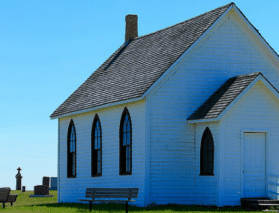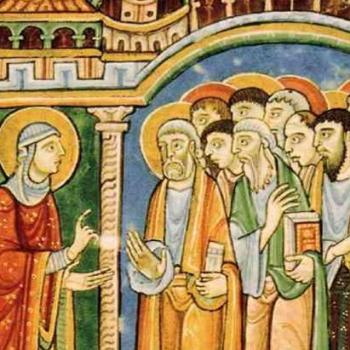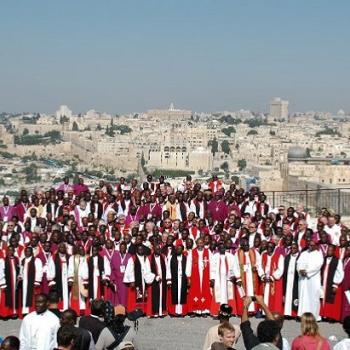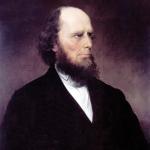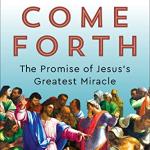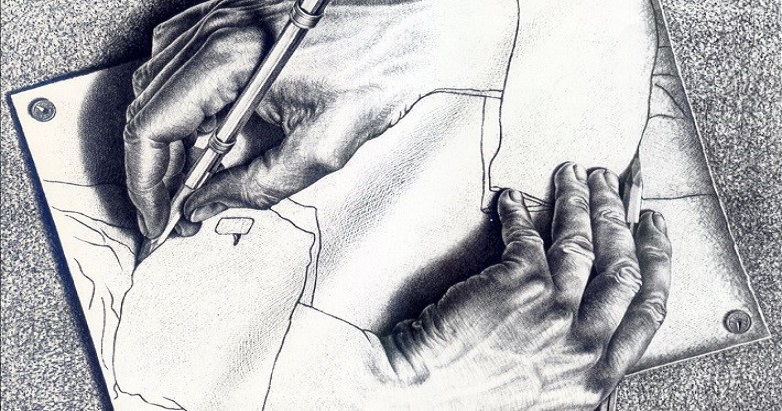
Looking back over the past year, it’s hard to imagine a blank space in place of the 15 posts here. None is perfect, but all are special to me. They are canvasses onto which I have poured out my soul, intellect, and imagination pondering the things of God; they have been catalysts for spiritual formation – mine, hopefully others’ – and productive engagement. Blogging (mostly) on the patriarchy has been a burden and a blessing: the burden and blessing of peace in the strife.
As I soldier on, one thing that continues to surprise me are the people at my church who’ve read this blog. I’m not on social media, nor do I consider myself to be popular or notable in my community, so I’d assumed my exposure here would be limited. Yet a deacon at my church was concerned about me after reading my caustic post on the Rt. Rev. Julian Dobbs. She wondered if I had peace.
So I asked her: what does peace mean?
Peace in the Strife: A Cruciform Life
A favorite hymn of mine, by fellow Sewanee alum William Alexander Percy, contemplates what peace means for Christians. It’s more complicated than we might think. Percy begins by considering the simple, relatively quiet lives of the apostles prior to their conversion and contrasts that shallow “peace” to the peace of the Christian life:
They cast their nets in Galilee
Just off the hills of brown,
Such happy, simple fisherfolk
Before the Lord came down.Contented, peaceful fishermen,
Before they ever knew
The peace of God that filled their hearts
Brimful, and broke them too.Young John who trimmed the flapping sail
Homeless in Patmos died.
Peter, who hauled the teeming net,
Head down was crucified.
Percy then concludes:
The peace of God, it is no peace,
But strife closed in the sod.
Yet Christians pray for but one thing –
The marvelous peace of God.
I’m familiar with this hymn because of my dad. As organist/choirmaster, he was responsible for selecting our hymns, and I think he appreciated this one for its lyrical beauty and depth. The tune, Georgetown, is appropriately haunting. I remember practicing the hymn in choir once, and Dad said to us, “This seems to have a profound but difficult message; what do you think it is?” His concern was not merely with the vocal performance of the piece but that its meaning, as well as its music, would resonate in us.
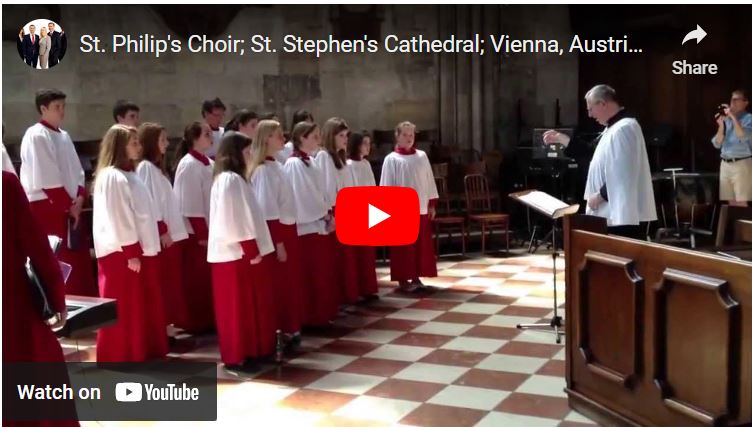
Do I have peace?
Did John and Peter have peace?
Yes and no, but there is peace in the strife.
I told my deacon that I had the peace of someone doing what God is calling me to do. And if that looks like strife, then perhaps I’m right on the money.
Thanks, Dad!
Encountering God
It bears mentioning that when I write something involving God, I try to invite him into that creative process. I don’t always sense his presence, but several times in the past year, I could feel the Holy Spirit’s inspiration and Jesus speaking Scripture to me as I drafted these posts. Encountering God in profound and surprising ways – as I ruminated on dark topics – certainly brought me some peace in the strife.
The post on Mary Magdelene was particularly memorable for me. I wrote most of it on my back porch, and while I hit some roadblocks, at times I felt the Holy Spirit like a gentle wind buffeting my thoughts. The lightness of his presence was unexpected and encouraging; I knew then that I was on to something, and that deep knowledge kept me going.
I finished my post denouncing the ESV Bible translation’s treatment of women late at night and went to bed straight away. I was satisfied with what I’d accomplished, but as I nodded off, I felt as if Jesus was speaking Luke 13 to me. In this passage, he heals a woman stricken for years with a debilitating, deforming condition. But rather than celebrating her freedom and healing, the synagogue leaders criticize Jesus for doing “work” on the Sabbath.
Heaven itself seemed to open in my mind. I suddenly realized that Carolyn Custis James’ criticism of the ESV – its partiality to the Old English term “man” in Gen. 1:16-27, rather than to the more inclusive, modern term “human beings”, while updating without hesitation older terms like “ass” to the more appropriate term “donkey” – recapitulates Jesus’ criticism in Luke 13, where he blasts the spiritual authorities for treating donkeys better than women:
“You hypocrites! Does not each of you on the Sabbath untie his ox or his donkey from the manger and lead it to water? And ought not this woman, a daughter of Abraham whom Satan bound for eighteen long years, be set free from this bondage on the Sabbath day?” (10-16)
Before my encounter with Jesus that night, I thought I’d sufficiently (perhaps too harshly?) detailed the distortions of the ESV and their significance to Christian living. But Jesus, in throwing out Luke 13 and catalyzing the donkey/woman connection, condemned the ESV in even stronger terms. I hadn’t gone nearly far enough. God’s presence to me this time was no gentle wind but an urgent appeal, a clarion call, the Word of God come alive from the pages of the Bible straight into my heart like a sword. I thought I was being subversive, but Jesus was gunning for more.
Why? Because my criticism, sharp though it was, didn’t do justice to God’s moral outrage. I believe Jesus stopped me before I published that post because he had something more powerful for me to say, something he wanted to make crystal clear: that the motives behind the ESV translation are part of a pattern of sin – the arrogance and ignorance of men in power – that he has already condemned.
Writing As Weaving: Making Peace in the Strife
My great-grandmother and namesake, Nell Serena Talley Ward, passed away when I was 11. As a child, I’d visit her throughout the year with my family, but I hadn’t known her well. I think my sense of her loss was blunted by my youth. When she was gone, what I remembered most about her – besides her incredible faith – was her skill at crochet. With needle and thread, which was always by her side in a basket when not in her hands, she created the most exquisite textiles: tablecloths, Christmas ornaments, doilies, runners.
Years after her death, in high school, I dreamed I was back in her home. In the dream, she’d just died, and I wanted to take her crochet needle with me even though I can’t crochet. I went to her bedroom, found her sewing basket in the closet, took the needle, and left.
Almost 30 years later, just last year, there was an estate sale at her home. The night before the auction, I spied her sewing basket and its contents in the auction photos; they were part of the sale. I asked a family member to grab the basket, and it’s in my bedroom now.

I finally got that needle, and although I still can’t crochet, like my nana, I can create. That was my inheritance. I just use words and thoughts instead of needle and thread. The metaphor to writing is apt; a crochet needle bears a striking resemblance to a pen.
I’m not sure what I’ll write here next, but the making of it will be part of my peace in the strife. And I look forward to seeing God, and seeing what he does, in my offering.




